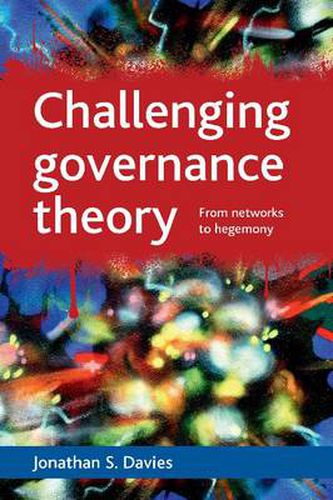Readings Newsletter
Become a Readings Member to make your shopping experience even easier.
Sign in or sign up for free!
You’re not far away from qualifying for FREE standard shipping within Australia
You’ve qualified for FREE standard shipping within Australia
The cart is loading…






Theories heralding the rise of network governance have dominated for a generation. Yet, empirical research suggests that claims for the transformative potential of networks are exaggerated. This topical and timely book takes a critical look at contemporary governance theory, elaborating a Gramscian alternative. It argues that, although the ideology of networks has been a vital element in the neoliberal hegemonic project, there are major structural impediments to accomplishing it. While networking remains important, the hierarchical and coercive state is vital for the maintenance of social order and integral to the institutions of contemporary governance. Reconsidering it from Marxist and Gramscian perspectives, the book argues that the hegemonic ideology of networks is utopian and rejects the claim that there has been a transformation from ‘government’ to ‘governance’. This important book has international appeal and will be essential reading for scholars and students of governance, public policy, human geography, public management, social policy and sociology.
$9.00 standard shipping within Australia
FREE standard shipping within Australia for orders over $100.00
Express & International shipping calculated at checkout
Theories heralding the rise of network governance have dominated for a generation. Yet, empirical research suggests that claims for the transformative potential of networks are exaggerated. This topical and timely book takes a critical look at contemporary governance theory, elaborating a Gramscian alternative. It argues that, although the ideology of networks has been a vital element in the neoliberal hegemonic project, there are major structural impediments to accomplishing it. While networking remains important, the hierarchical and coercive state is vital for the maintenance of social order and integral to the institutions of contemporary governance. Reconsidering it from Marxist and Gramscian perspectives, the book argues that the hegemonic ideology of networks is utopian and rejects the claim that there has been a transformation from ‘government’ to ‘governance’. This important book has international appeal and will be essential reading for scholars and students of governance, public policy, human geography, public management, social policy and sociology.